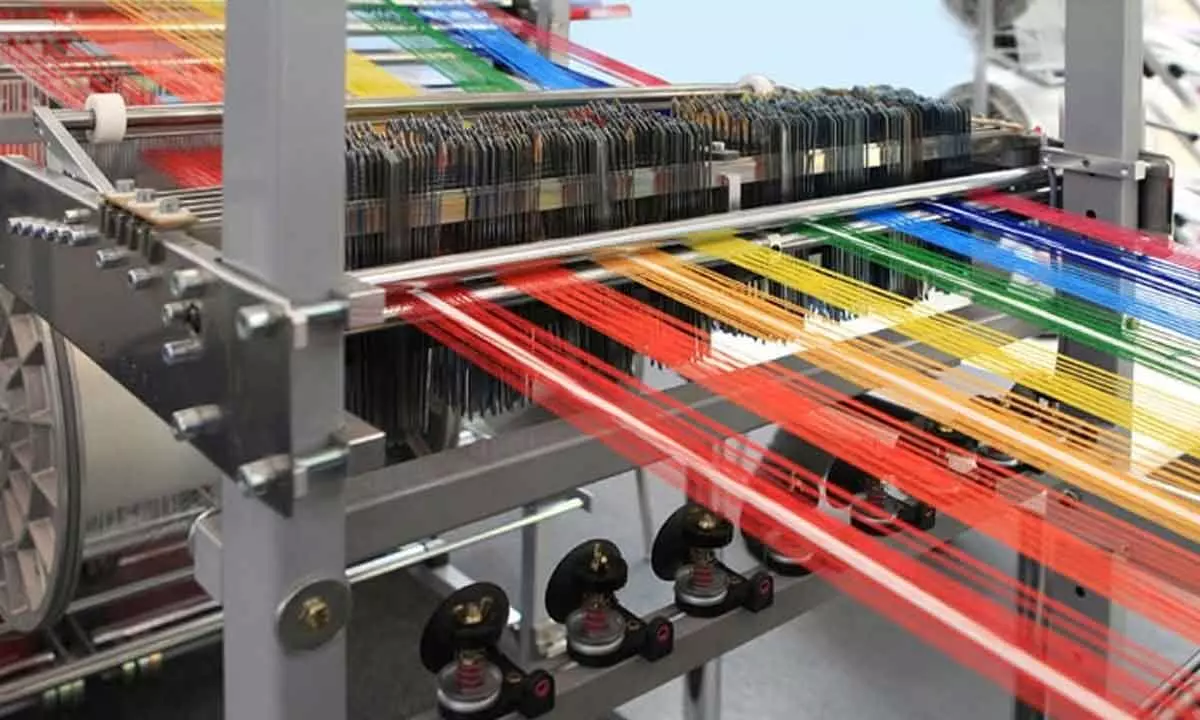Textile education in India - Career opportunities for students

Textile education in India - Career opportunities for students
Education is pivotal for progress, notably in India’s thriving textile sector. As a global leader, India’s textile industry is a key economic pillar, contributing 12% to industrial production, 2.3% to GDP, and 12% to total exports. Beyond economic metrics, it serves as a major employment hub, being the nation’s second-largest employer after agriculture. With a direct workforce of 45 million and an indirect impact on 100 million livelihoods, the textile industry profoundly influences India’s socio-economic fabric. This underscores the vital role of education in sustaining and advancing the dynamic landscape of the Indian textile sector.
Current Scenario
Textile education in India encompasses a wide range of programs, from diploma courses to undergraduate degrees. Numerous institutions offer courses in textile engineering, fashion design, and related fields due to rising demand in domestic and global markets. The curriculum includes subjects such as polymer chemistry, fibre science, and textile chemical processing, preparing students for careers in the industry. In addition, the government has introduced initiatives and schemes to support the textile industry, including paid internships for students pursuing textile-related degrees. However, the country’s textile education system grapples with significant challenges that hinder its growth potential.
Gaps in Textile Education
The textile education sector faces significant gaps that hinder the seamless integration of graduates into the textile industry.
● Lack of Industry Awareness: There is limited student awareness about textile industry courses due, in part, to their restricted availability, a situation that needs immediate rectification.
● Restrictive Education Pattern: A theory-centric approach marginalises students’ practical knowledge, and hinders hands-on experience. We need to foster the seamless application of theory to real-world textile practices, thus encouraging holistic skill development.
● Limited Research: There is a paucity of research on functional improvements in textiles. The industry needs to shift emphasis from productivity and cost reduction to creative innovation.
● Urban Preference: Students prefer jobs in major cities, while the industry is located in rural areas, indicating a need to expand infrastructure.
● Lack of Specialisation Awareness: The wide range of textile products creates confusion among students about choosing a specialisation, which can be changed by providing the necessary information to aid their decision-making process.
Challenges in Textile Education
The textile industry grapples with multifaceted challenges, as highlighted in the report “Decadal Outlook for Textile Industry: Threads of Transformation for Textile Industry” by the Confederation of Indian Industry and Primus Partners. Issues include sector fragmentation, inadequacy of short-term training for workers, infrastructure gaps due to outdated technologies, and a lack of awareness about emerging areas like technical textiles. The report emphasises the industry’s struggles with inadequate attention to technology, research, development, and quality testing across the value chain.
Opportunities in the Textile Industry
Despite challenges, revitalising textile education in India is feasible, given the youthful population, increasing apparel demand, and advancements in technical textiles There are several opportunities in the textile industry to consider:
● Fostering a Skilled Workforce: Textile education institutions are essential for cultivating a skilled workforce aligned with industry needs, playing a crucial role in nurturing future designers, engineers, and managers.
● Promoting Cooperative Collaboration: Close industry-academia partnerships can bridge the theory-practice gap, providing students with real-world exposure and hands-on experience, and offering fresh perspectives to companies.
● Attracting Talent: To develop a skilled textile workforce, educational institutions should raise awareness of industry benefits and career opportunities, showcasing success stories, collaborations, and growth potential.
● Interdisciplinary Approach: The future of textile education involves an interdisciplinary approach, integrating knowledge from fields like mechanical engineering, mechatronics, and artificial intelligence, ensuring students possess a holistic skill set for the evolving industry.
● Government Initiatives Paving the Way for Progress: Governments at both central and state levels are driving the transformation of the textile industry with initiatives like PM MITRA, PLI, and SAMARTH, boosting economic expansion and generating a significant number of jobs in the Indian textile sector.
Bottom Line
The transformation of India’s textile education system is imperative to foster the industry’s sustained growth and global competitiveness. By addressing challenges and embracing opportunities can make India a leader in nurturing a skilled workforce, propelling the textile sector into a dynamic and innovative future, empowering the youth and driving industry growth.
(The author is Founder and CEO, The Yarn Bazaar)








